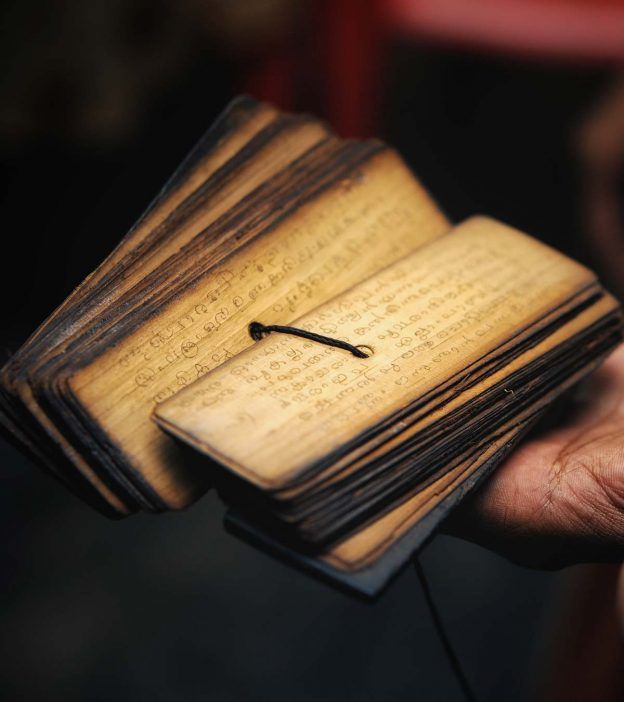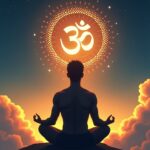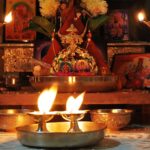10 Powerful Slokas in India That Will Inspire Your Life
India, known as the land of ancient wisdom, has given the world Slokas—sacred verses that contain spiritual knowledge, ethical guidance, and philosophical insights. Slokas are more than just poetry; they are tools for self-reflection, meditation, and moral development. This article explores the history, facts, timeline, significance, FAQs, impact on daily life, and societal importance of Slokas, written in a human-friendly and inspiring tone.
History of Slokas
Vedic Roots: Slokas originated from the Vedic scriptures (1500–500 BCE) and were designed to convey knowledge in a rhythmic, memorable form.
Epic Era: Slokas are extensively used in the Ramayana, Mahabharata, and Puranas, teaching dharma, devotion, and ethics.
Classical Period: Sanskrit scholars and saints like Kalidasa composed Slokas that combined literary beauty with spiritual meaning.
Medieval Era: Slokas were popularized in devotional literature, including Bhakti and Tantra texts, guiding ethical living and spiritual devotion.
Modern Era: Slokas are used today in schools, spiritual practices, meditation, and global Indian diaspora communities.
Interesting Facts About Slokas
Meaning of Sloka: Derived from Sanskrit “slok” meaning praise or hymn, a Sloka is a verse in a specific meter.
Composition: Typically in Sanskrit, Slokas are short, rhythmic, and easy to memorize.
Spiritual Tool: Slokas are chanted to invoke divine blessings, meditate, and cultivate positive energy.
Famous Examples:
Shanti Mantras: For peace and calmness.
Bhagavad Gita Slokas: Teach dharma, duty, and wisdom.
Hanuman Chalisa Verses: Inspire courage and devotion.
Mental and Emotional Benefits: Chanting Slokas improves concentration, emotional stability, and mindfulness.
Cultural Preservation: Slokas preserve Sanskrit language, philosophical ideas, and devotional practices.
Global Popularity: Slokas are studied and chanted worldwide for spiritual growth and meditation.
Scientific Aspect: Rhythmic recitation creates vibrations that positively affect the mind and body.
Daily Life Integration: Slokas are used in prayers, festivals, rituals, and morning routines.
Teaching and Learning: Slokas are memorized in gurukuls, schools, and spiritual institutions, promoting literacy and cultural knowledge.
Timeline of Slokas in India
Vedic Period (1500–500 BCE): Slokas used in rituals, prayers, and spiritual education.
Epic Period (500 BCE–500 CE): Slokas narrated in Ramayana and Mahabharata for moral and spiritual guidance.
Classical Period (500–1500 CE): Scholars like Kalidasa composed literary Slokas with philosophical meaning.
Medieval Period (1500–1800 CE): Devotional Slokas spread across India, focusing on Bhakti, morality, and social ethics.
Modern Era (1800–Present): Slokas are integrated into education, meditation, yoga, and spiritual retreats globally.
Significance of Slokas
Spiritual Significance: Slokas guide individuals toward self-realization, devotion, and divine connection.
Ethical and Moral Guidance: Teach principles of truth, duty, compassion, and righteousness.
Mental Clarity: Chanting enhances focus, memory, and inner calm.
Cultural Preservation: Keeps alive Sanskrit, Indian philosophy, and traditional knowledge.
Daily Life Application: Helps cultivate discipline, mindfulness, and positive thinking.
Societal Impact: Slokas inspire community gatherings, religious events, and educational programs.
FAQs About Slokas
Q1: What is a Sloka?
A1: A Sloka is a sacred verse or hymn in Sanskrit, conveying spiritual, philosophical, or moral wisdom.
Q2: Can anyone chant Slokas?
A2: Yes, chanting is open to all; correct pronunciation and devotion enhance its benefits.
Q3: How often should Slokas be recited?
A3: Ideally daily or during rituals, meditation, or devotional practice.
Q4: Are Slokas only Hindu?
A4: While rooted in Hindu texts, Slokas promote universal wisdom applicable to all.
Q5: What are the benefits of chanting Slokas?
A5: Improves mental clarity, emotional balance, spiritual awareness, and overall well-being.
Impact on Daily Life
Spiritual Growth: Enhances faith, mindfulness, and inner peace.
Mental Wellness: Reduces stress, anxiety, and distraction.
Ethical Living: Encourages compassion, patience, and moral action.
Cultural Awareness: Connects individuals to ancient Indian heritage.
Community Bonding: Chanting together strengthens social and spiritual bonds.
Observance and Wishing
Daily Chanting: Incorporate Slokas into morning prayers, meditation, and study routines.
Festivals and Rituals: Used in Navaratri, Diwali, Maha Shivratri, and pujas.
Wishing: Recite Slokas for wisdom, health, protection, and spiritual upliftment.
Ashram and Guru Guidance: Many Slokas are taught and chanted in ashrams under Gurus’ guidance.
Conclusion: Why Slokas Matter
Slokas are timeless treasures of India’s spiritual and cultural heritage. They guide individuals toward self-discipline, inner peace, and moral living. In daily life, Slokas foster mindfulness, focus, ethical behavior, and spiritual awareness. For society, they preserve language, philosophy, and traditions, connecting generations through shared spiritual practices.
Chanting or learning Slokas can transform your mental, emotional, and spiritual life, making them an essential part of holistic well-being and cultural identity.
Quick Recap: 10 Powerful Facts About Slokas
Connect mind, body, and spirit.
Originated in Vedic texts.
Found in Epics and Puranas.
Teach dharma, devotion, and wisdom.
Enhance mental clarity and emotional balance.
Used in rituals, meditation, and prayers.
Preserve Sanskrit and Indian heritage.
Promote spiritual and ethical growth.
Benefit both individual and community life.
Inspire devotion, discipline, and mindfulness.
Slokas
Sloka usually forms the part of Hindu prayers. Shloka can also be attributed to specific Gods and Goddesses.
What is Sloka
Sloka is a powerful prayer which conveys the dignity and the omnipotence of God. Sanskrit Shlokas describe God in different forms and their celestial powers. People, who sincerely recite these verses and invoke the God mentally, attain a steady and peaceful mind.
Shloka forms the part of ”Stotras” which are dedicated to Gods as prayers. Slokas are the primary verses from Mahabharata and Ramayana, the great epics of Indian Mythology. In this section, we are covering the following slokas:
Bedtime Sloka
Bedtime is the time when people want to relax themselves after the long hectic schedules of the day. It is considerable to remember God at such time. Following Bedtime Sloka / Shloka is a bedtime prayer of the Hindus.
Bhagavad Gita Slokas
Slokas are verses in the praise of God. Shlokas from Bhagwad Gita are renowned for their massive power. Gita Slokas bring the idea of spirituality to our mind. Slokas of Bhagavad Gita can be recited in order to get the peace of mind. Daily chant of these slokas, with their meanings kept in the mind
Durga Sloka
Durga symbolizes the power of the Supreme Being that maintains moral order and justice in the universe. Durga is also known as “Shakti”. Worship of the goddess Shakti is very popular among the Hindu people.
Early Morning Sloka
Early Morning is considered as the best time to worship God. Early morning is also known as “Brahma Mahurat” in the Hindu Mythology. It is regarded that prayers made at this time reach directly to the God. Early Morning Shloka (Sloka) is given here which also serves as the first prayer of the day to the almighty.
Ganesh Sloka
Lord Ganesha is the one of the most popular gods of the Hindu Religion. Ganesh is known as the eradicator of obstacles and god of beginnings. Lord Ganesha is considered as the first god to be worshipped. Slokas on Lord Ganesha form the part of prayers offered to the lord. Here is a collection of Ganesha Shlokas:
Holy Bath Sloka
Bathing is a time when people take a shower to shed the physical impurities and dirt of their body. Following is the Shloka/ Sloka for a Holy Bath, which can be recited while taking a bath.
Krishna Sloka
Lord Krishna is one of the most popular and worshipped deities among the Hindus. Krishna represents knowledge, wisdom, beauty and opulence. Shri Krishna is the very embodiment of love and divine ecstasy that destroys all pain and offense. Sloka on Krishna forms the part of prayers offered to the lord.
Parvati Sloka
Goddess Parvati is the divine consort of Lord Shiva, the destroyer. Gauri represents virtue, fertility, marital felicity, asceticism and power, as per the Hindu mythology. Parvati is worshipped by women of all ages and is considered as an auspicious goddess.
Rama Sloka
Lord Rama is the seventh incarnation of Lord Vishnu, as per the Hindu Mythology. Ram symbolizes morality, virtue and idealism. Rama Slokas form part of prayers offered to the lord.
Saraswati Sloka
Saraswati is the goddess of arts, music, knowledge, and wisdom. Saraswati is considered as the divine consort of Lord Brahma, the Creator of the universe as per the Hindu Religion. Saraswati is regarded as the destroyer of chaos and confusion. Slokas on Saraswati form the part of prayers offered to the goddess.
Shiva Sloka
Lord Shiva or Siva is considered as the destroyer of the world. Shiva is one of the most popular gods of the Hindu religion. Shiva is also a kind-hearted god who blesses people.
Sloka While Eating
Eating is an important activity, which is required in order to live. It is God, who has created each and every thing. Food, hunger, living beings, all of them form the part of God’s creation. One should remember God, the omnipresent, who has given both, sweet and sour delicacies to satisfy our taste-buds.
Sloka While Lighting Lamp
Light is considered as a symbol of auspiciousness, prosperity and abundance in the Hindu religion. Light brings brightness with it and removes the darkness. Light makes it possible to see things clearly. Following Sloka / Shloka can be recited while lighting the lamp. This prayer is also known ”deepa shlokam”.
Vishnu Sloka
Lord Vishnu is considered as the chief god in Hindu religion and Indian mythology. Vishnu, the preserver, forms the part of trinity gods. Vishnu Slokas form the part of prayers offered to the lord. Vishnu Slokas/ Shlokas are as follows:








